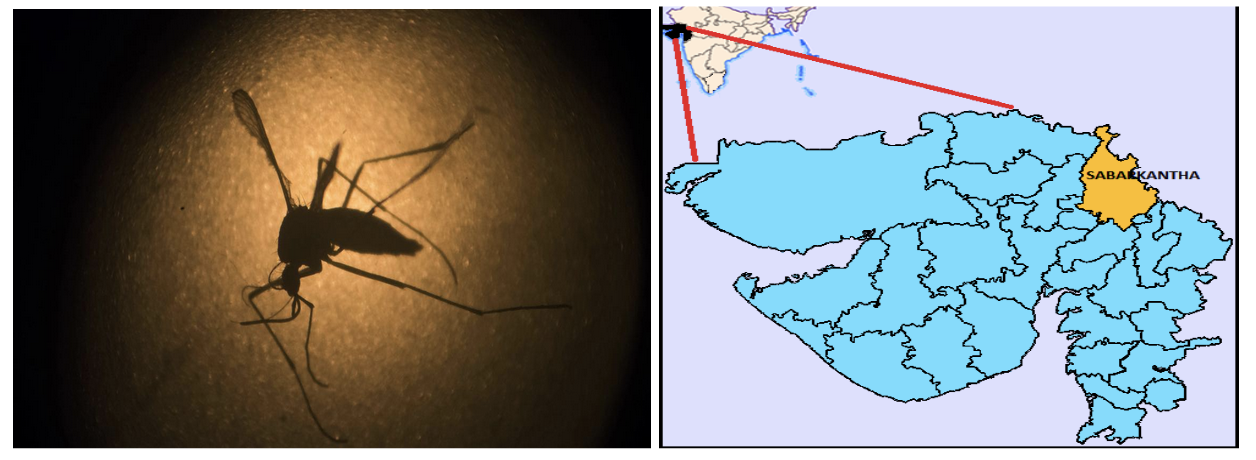News Excerpt:
In Gujarat’s Sabarkantha district, four children have died and two others are under treatment for suspected infection of Chandipura virus, which causes encephalitis.
More detail about news:
- The two children are being treated at the civil hospital at Himmatnagar in the district.
- The local authorities have sent the samples of the deceased and two kids who are undergoing the treatment to the National Institute of Virology for confirmation.

About Chandipura virus:
- Chandipura virus is a rare and potentially deadly pathogen that causes fever, with symptoms similar to flu, and acute encephalitis (inflammation of the brain).
- The pathogen is a member of the Vesiculovirus genus of the family Rhabdoviridae.
- It is transmitted by vectors like mosquitoes, ticks and sandflies. It can lead to rapid progression of illness, coma, and even death.
- Chandipura Virus (CHPV), a member of Rhabdoviridae, is responsible for an explosive outbreak in rural areas of India.
- It affects mostly children and is characterized by influenza-like illness and neurologic dysfunctions.
- An effective real-time one step reverse-transcriptase PCR assay method is adopted for diagnosis of this virus.
- CHPV has a negative sense RNA genome encoding five different proteins (N, P, M, G, and L). P protein plays a vital role in the virus's life cycle, while M protein is lethal in nature.
- There is no specific treatment available to date, symptomatic treatment involves use of mannitol to reduce brain edema.
|


